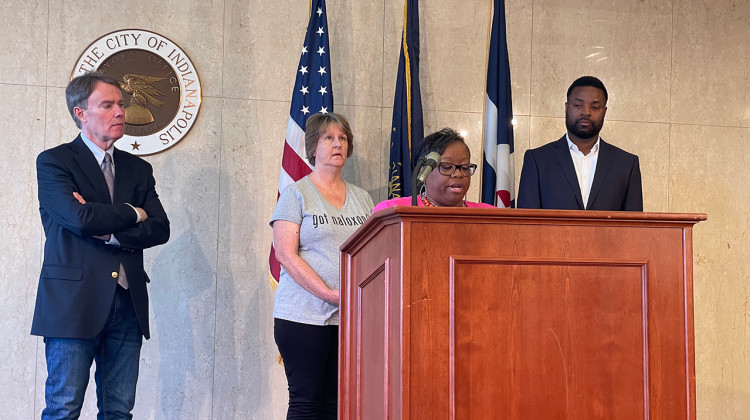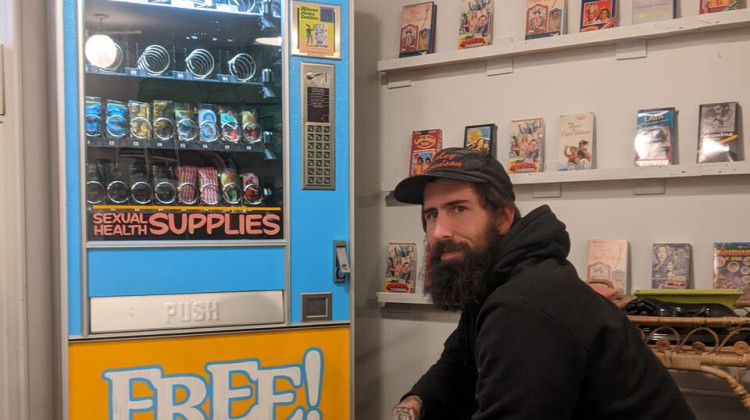
Chief Deputy Coroner Alfie McGinty discussed a proposed $800,000 opioid response grant program at a press conference on Wednesday.
Darian Benson/WFYI NewsAn $800,000 grant program to address the opioid crisis was approved tonight by the Indianapolis City County Council’s Public Safety and Criminal Justice Committee. Mayor Joe Hogsett highlighted the proposed program at a press conference earlier in the day.
If approved by the full Council, the program would be funded through the city’s share of the national opioid settlement with opioid manufacturers and distributors. Indiana is slated to receive $507 million, which will be distributed across the state.
Through a partnership between the Marion County Coroner's Office and the Office of Public Health and Safety, the money would be awarded to groups in the city that are addressing the opioid crisis.
“It is our goal to greatly expand the reach of the organizations that can effectively treat, educate and connect families to the resources that can help,” Hogsett said.
Hogsett said the program is part of the city’s effort to redirect people with substance use disorders or mental illnesses away from prison and into treatment.
“I think that more money available for education and prevention will go a long way toward heightening awareness and hopefully being able to prevent problems before they occur,” Hogsett said.
More than 800 Marion County residents died from fatal overdoses in 2022, said Chief Deputy Coroner Alfie McGinty.
“All of these overdose deaths are due in part to the influx of fentanyl in the drug supply that is flooding our nation,” McGinty said.
She said there has also been an increase in the number of African Americans and people of color affected by the opioid crisis.
“We must address prevention, outreach and provide services to reach our communities,” McGinty said. “To increase education, awareness, and harm reduction and meet the community members where they are, we will rely on community organizations who are deep in our communities to be partners as we try to decrease this upward trend that we are seeing.”
The program is intended to help expand services to organization that:
- Address substance use in communities of color or underserved populations that have been most impacted by the opioid epidemic.
- Promote and assist with connections to recovery services.
- Reduce stigma associated with substance use that prevents people from seeking help.
- Address youth and family prevention strategies.
- Promote community wellness in communities impacted by the overdose crisis through trusted partners and peer support workers.
The program is part of a larger fiscal package Hogsett introduced before the City-County Council last week. Other programs that are part of the proposal include the master leasing of units for permanent supportive housing, barrier-buster funds to help residents in diversion programs and mental health programing funds for the Office of Public Health and Safety.
The proposal heads to the full Council for a final vote on May 8.
Contact WFYI health reporter Darian Benson at dbenson@wfyi.org.
 DONATE
DONATE






 View More Programs
View More Programs

 Support WFYI. We can't do it without you.
Support WFYI. We can't do it without you.